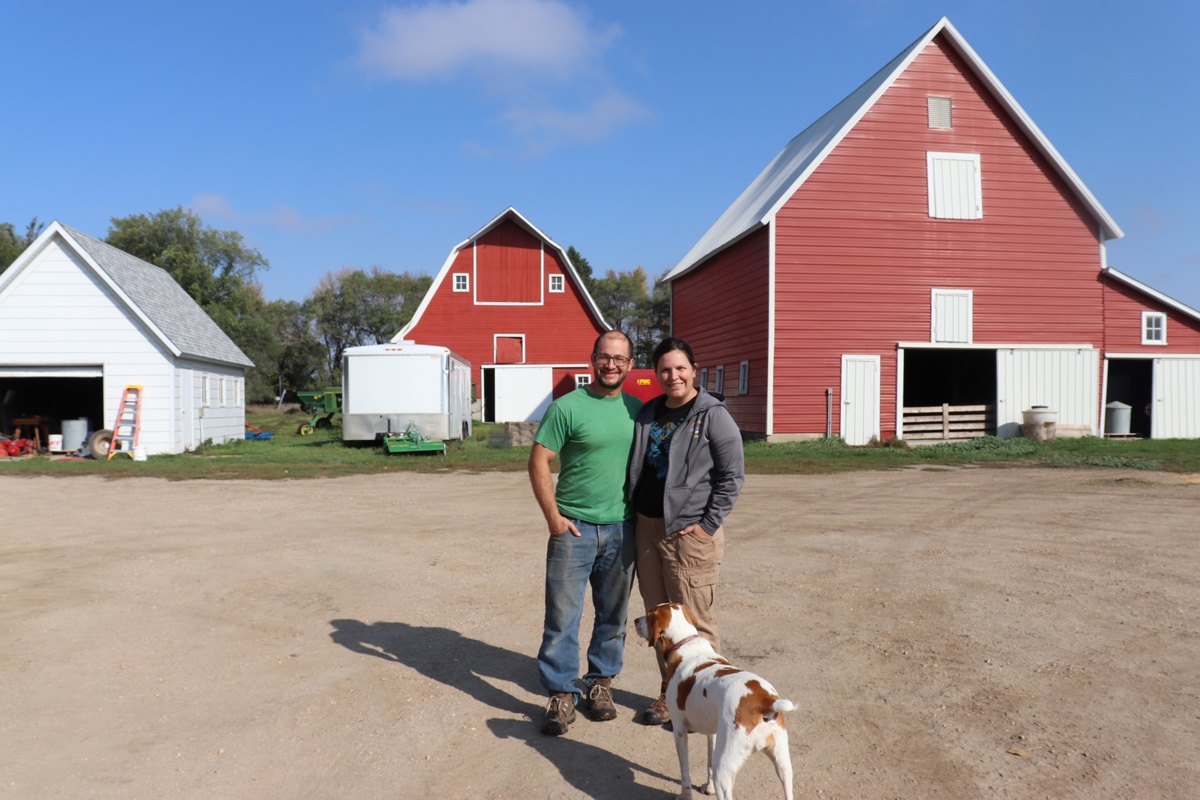Farmers Adapt to a changing Climate
Anne Schwagerl and her husband Peter operate Prairie Point Farm in western Minnesota’s Browns Valley. They raise corn, soybean, oats, and Kernza® crops along with pastured pork and laying hens. Their most recent addition is Kernza®, a new perennial grain with deep roots and an ability to create healthier soil in an agricultural landscape challenged by climate change.
Extreme Weather
Like many farmers throughout the state, the Schwagerls have experienced the harsh effects of a changing climate. Extreme weather events like last summer’s drought devastated many farmers. “We had a really tough growing season. It affected all of our crops,” said Anne Schwagerl. “It's hard as a farmer to put in all the work to get the crop in the ground and to watch the sky and pray for rain and for it not come for months. It's not for the faint of heart.”
Schwagerl says climate change is a direct threat to their ability to make a living and she worries about long-term reductions in crop yields. “Weather swings will affect us. Every year it drives more family farmers off the landscape leading to further ag consolidation, which is not good for our national food security, and it’s not good for rural communities.”
Cultivating Solutions
Climate solutions, like the Kernza® grain, become more critical every year. Kernza®—created in Kansas and further developed at the University of Minnesota—is an innovative grain that helps farmers with soil and water health. The Schwagerls have diversified their farm with 40 acres of the crop. The grain is a continuously-living crop covering the soil year-round, eliminating wind erosion with its deep roots, leading to healthier soil and preventing runoff. “It has a lot of water quality benefits,” Schwagerl notes.
The prospect that the perennial Kernza® grain will accelerate in use is likely, due to its climate resilient qualities. As fourth-generation farmers, the Schwagerls know their early adoption of these crops means creating a legacy for future generations. “We, as farmers, think in generational standpoints. I want to think about the future I am leaving for my kids. Farmers are stewards of our land because we want to have quality to leave for our families for the future,” says Schwagerl.
Preparing for the Future
The Schwagerls aren’t alone. As stewards of our land, Minnesota farmers understand climate impacts and the need to adapt their growing practices to weather the changes. Our nation’s food systems are dependent on farmers and the land, which is why policy changes, like Congress’ Build Back Better Act, a strong climate policy on track to become law later this year, must also be part of the solution.
Learn More
- Video interview with Anne Schwagerl below
